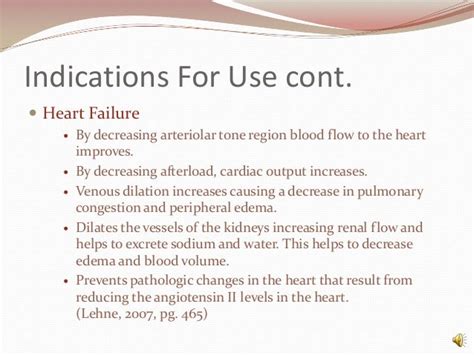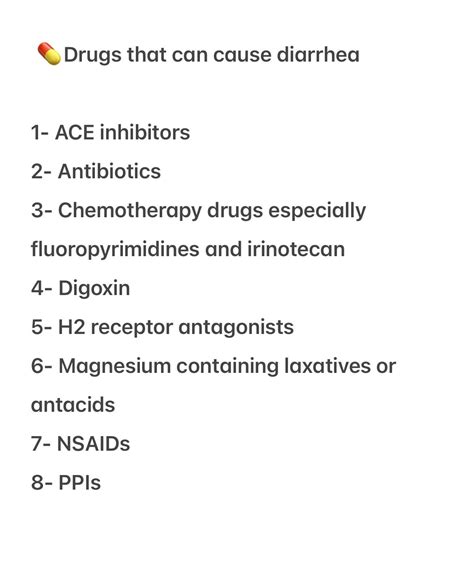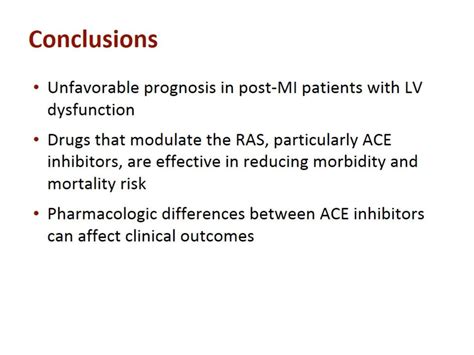Intro
Discover the potential risks of ACE inhibitors. Learn about the 7 common side effects, including cough, dizziness, and kidney damage. Understand the impact on blood pressure, heart health, and overall well-being. Manage your medication safely with expert insights on angiotensin-converting enzyme inhibitor therapy.
Ace inhibitors are a type of medication commonly used to treat high blood pressure and heart failure. They work by blocking the production of angiotensin-converting enzyme (ACE), a chemical that constricts blood vessels and increases blood pressure. While ace inhibitors can be effective in managing these conditions, they can also cause a range of side effects. Here are 7 common side effects of ace inhibitors:

What are Ace Inhibitors?
Before we dive into the side effects of ace inhibitors, let's take a brief look at what they are and how they work. Ace inhibitors are a type of medication that belongs to a class of drugs known as angiotensin-converting enzyme inhibitors. They work by blocking the production of angiotensin II, a potent vasoconstrictor that increases blood pressure. By blocking the production of angiotensin II, ace inhibitors cause blood vessels to relax and widen, which lowers blood pressure and increases blood flow to the heart.
How Do Ace Inhibitors Work?
Ace inhibitors work by inhibiting the conversion of angiotensin I to angiotensin II. Angiotensin II is a potent vasoconstrictor that increases blood pressure by constricting blood vessels. By blocking the production of angiotensin II, ace inhibitors cause blood vessels to relax and widen, which lowers blood pressure and increases blood flow to the heart. Ace inhibitors also increase the levels of bradykinin, a peptide that helps to relax blood vessels and reduce inflammation.
7 Common Side Effects of Ace Inhibitors
While ace inhibitors can be effective in managing high blood pressure and heart failure, they can also cause a range of side effects. Here are 7 common side effects of ace inhibitors:
1. Cough
One of the most common side effects of ace inhibitors is a dry, persistent cough. This cough is caused by the increased levels of bradykinin, which can irritate the lungs and airways. The cough can be mild or severe and may be accompanied by wheezing or shortness of breath.

2. Dizziness and Lightheadedness
Ace inhibitors can cause dizziness and lightheadedness due to the sudden drop in blood pressure. This can be a problem, especially when standing up quickly or changing positions.
3. Headache
Headache is another common side effect of ace inhibitors. The headache can be mild or severe and may be accompanied by fatigue, dizziness, or nausea.

4. Fatigue
Ace inhibitors can cause fatigue, which can be mild or severe. The fatigue can be due to the drop in blood pressure or the increased levels of bradykinin.
5. Nausea and Vomiting
Some people may experience nausea and vomiting when taking ace inhibitors. This can be due to the increased levels of bradykinin or the drop in blood pressure.
6. Diarrhea
Diarrhea is another common side effect of ace inhibitors. The diarrhea can be mild or severe and may be accompanied by abdominal pain or cramping.

7. Skin Rash
Some people may experience a skin rash when taking ace inhibitors. The rash can be mild or severe and may be accompanied by itching or hives.
Managing Side Effects of Ace Inhibitors
While ace inhibitors can cause a range of side effects, there are ways to manage them. Here are some tips to help you manage the side effects of ace inhibitors:
- Take your medication as directed by your doctor.
- Monitor your blood pressure regularly.
- Stay hydrated by drinking plenty of water.
- Avoid standing up quickly or changing positions suddenly.
- Eat a healthy, balanced diet.
- Get regular exercise.

Conclusion
Ace inhibitors are a common medication used to treat high blood pressure and heart failure. While they can be effective in managing these conditions, they can also cause a range of side effects. By understanding the common side effects of ace inhibitors and taking steps to manage them, you can minimize their impact and get the most out of your treatment.

We hope this article has been helpful in understanding the common side effects of ace inhibitors. If you have any questions or concerns, please don't hesitate to comment below. Share this article with your friends and family to help them understand the side effects of ace inhibitors.
What are the most common side effects of ace inhibitors?
+The most common side effects of ace inhibitors include cough, dizziness, headache, fatigue, nausea, diarrhea, and skin rash.
How can I manage the side effects of ace inhibitors?
+You can manage the side effects of ace inhibitors by taking your medication as directed, monitoring your blood pressure regularly, staying hydrated, avoiding sudden changes in position, eating a healthy diet, and getting regular exercise.
Can I stop taking ace inhibitors if I experience side effects?
+No, you should not stop taking ace inhibitors without consulting your doctor. Your doctor may be able to adjust your dosage or recommend alternative medications to manage your side effects.
